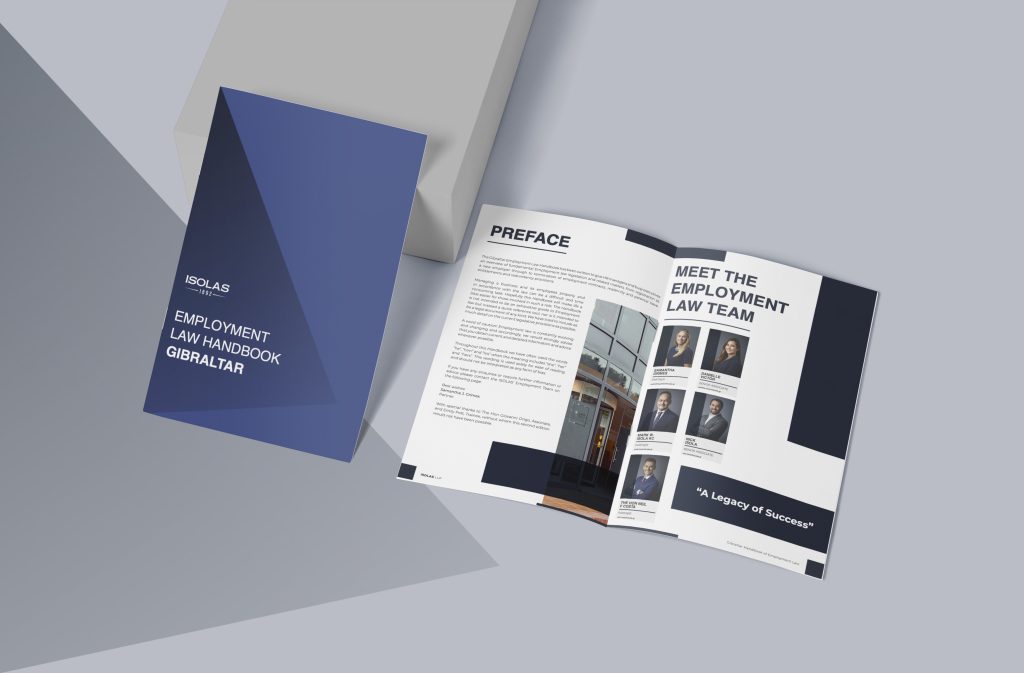As of the 17th March, Her Majesty’s Government of Gibraltar has enacted emergency legislation which has effectively closed the Supreme Court Registry and the Magistrates’ Court public counters to the public, as well as impacting new and existing civil and criminal proceedings.
ISOLAS LLP Senior Associate Danielle Victor comments on the recently implemented measures, and their impact on litigation, as well as the wider impact that the COVID-19 pandemic is having in Gibraltar.
The outbreak of novel coronavirus (COVID-19) has had significant socio-economic impact across the globe. Gibraltar has been no exception, and at the time of publication, we have had a total of 10 cases in Gibraltar, 8 of which remain active and 2 of which have, fortunately, recovered. Yet, earlier this week, despite there being no active cases in Gibraltar, legislation was passed effectively closing the Gibraltar Courts, and consequently staying all civil actions and vacating all hearings for a period of 30 days. This is an unprecedented move for Gibraltar, but why has it been taken?
Gibraltar’s proximity to Spain means that, for better or worse, its respective populations are intertwined. Whilst this in itself carries its own political complications – let’s not delve into Brexit discussions for a change – never has it been more apparent that the border between these two nations is a political one, and one which this virus does not recognise.
As the COVID-19 pandemic has escalated in Spain over the last week, sure enough, this week we are beginning to see measures being put in place to protect residents in Gibraltar.
For Gibraltar, we have had the advantage of having seen the impact of the virus, now almost worldwide, which has allowed the jurisdiction to pre-empt the effects on a micro-community, such as Gibraltar, and take pro-active measures to help slow the virus down, even before we had any active cases. The contingency measures put in place by the Chief Justice of Gibraltar in exercise of the powers conferred upon him by section 38 of the Supreme Court Act, are no different.
Traditionally, courts require the attendance of parties to litigation (and/or their legal representatives where appropriate). The same goes for judges, witnesses, jurors and even court staff such as bailiffs and clerks. That said, in recent years and more notably with the introduction of Part 18 of the Criminal Procedure and Evidence Act 2011, technological advances have allowed for evidence to be given by means of live feeds and for some preliminary hearings to be conducted in the same way as an alternative to the Defendant having to be taken out of HM Prison, for example.
In a civil context, Part 32 of the Civil Procedure Rules allows for witness evidence to be given by video link (or by “other means”) and in other legal proceedings (e.g. interim applications, case management conferences and pre-trial previews) at the discretion of the court by application and only in limited circumstances. Similarly, Practice Direction 23A allows for hearings of “no more than one hour” to be held via telephone.
This means that, in theory, the Gibraltar Court Service should be well equipped to conduct at least part of its litigation by way of remote access, on a best-case scenario, in order to promote the social distancing policies imposed by Her Majesty’s Government of Gibraltar and at worst, whilst key players within our Court Service are in the quarantine phase at the height of the pandemic.
However, in practice, the mechanisms available, particularly in a civil context are rarely used. This is primarily due to the limited technological infrastructure available in the Gibraltar courts, given our small jurisdiction, when compared to that of England & Wales; the jurisdiction with which the Civil Procedure Rules were drafted in mind of. Even then, it is one thing to have necessary technology in place to deal with hearings remotely on an ad hoc basis, and entirely another to expect the technology available to be put under the tremendous pressure required to conduct all litigation by these means. In light of this, it is questionable whether a similar closure of the Ministry of Justice’s HM Courts & Tribunal Service in England & Wales might follow, only allowing for limited hearings to take place.
With that in mind, what do the contingency measures put in place by the Chief Justice mean in practice?
The measures have been drafted into emergency legislation, specifically, the Supreme Court (Covid 19 Contingency) Rules 2020 and Magistrates’ Court (Covid 19 Contingency) Rules 2020. The rules came into operation on 17th March 2020 for a period of 30 days unless increased or reduced by further notice in the Gazette, or other suitable public notice.
In summary, actions will be affected as follows:
Supreme Court (whether criminal or civil)
- Save for limited purposes the Registry shall be closed to the public
- Civil actions are stayed[1]
- All hearings are vacated
- Bail is extended in the defendant’s absence and a moratorium granted for payment of fines and compensation
- Hearings may be conducted by telephone
- Applications may be filed by email at urgentcontact@gcs.gov.gi – this email address is to be used for urgent matters on where limitation issues arise
- The court will continue to sit to deal with defendants on remand
Magistrates’ Court
- Save for limited purposes, the public counter shall be closed to the public
- All hearings are vacated
- Bail is extended in the defendant’s absence and a moratorium granted for payment of fines and compensation
- Hearings may be conducted by telephone
- The court will continue to sit to deal with:
- First appearances
- Remands
- Urgent matters
Special arrangements are also being put in place for the collection and payment of family maintenance ordered to be paid through the court. Urgent applications for grant of probate should be directed to registrar@judiciary.gi.
It is worth nothing that rules covering the Court of Appeal have not been published. However, this is under continuous review by the Chief Justice and the President of the Court of Appeal.
The courts are expected to re-open on 17 April 2020, unless the rules are extended or removed prior to that date. Until then, we will continue to keep our clients updated as we forge ahead in such unprecedented times.
If you would like any more information on the reforms, please contact Danielle Victor on danielle.victor@isolas.gi.
[1] The making of a stay imposes a halt, not only upon proceedings, but also upon the expiration of any time limit in those proceedings which had not expired when the stay was imposed. An order staying proceedings applies to every step otherwise required by the CPR, including the obligation to serve a claim form issued before the stay was imposed. When the stay is lifted, or the stay expires, the position as between the parties is the same as it was at the moment that the stay was imposed. The parties (and the court) pick up where they left off at the time of the imposition of the stay (Grant v Dawn Meats UK [2018] EWCA Civ 2212).




